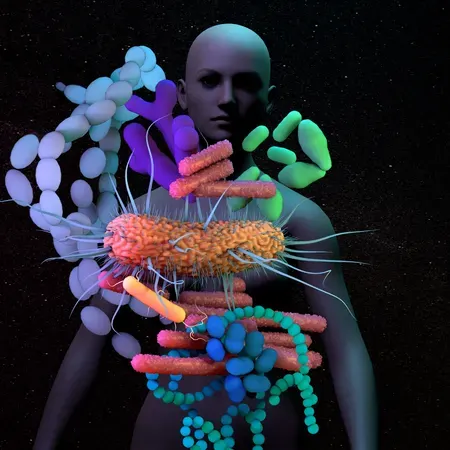What is the Gut Microbiome - and Why is it Important?
This article explains what the gut microbiome is and highlights extensive research on how our gastrointestinal bacteria impact digestion, immunity, weight, hormones, and even mental health. Learn how to support gut health through diet, lifestyle, probiotics and prebiotics.

🎧 https://drlisasingletary.online/gut 🎧
What is the gut microbiome?
The gut microbiome refers to the diverse community of microorganisms, including bacteria, viruses, and fungi, that live in the gastrointestinal tract. This complex microbial ecosystem plays crucial roles related to digestion, metabolism, immunity, and much more.
How does the gut microbiome impact health?
Extensive research demonstrates the gut microbiome influences our overall health in multiple ways. It affects nutrient absorption, weight management, inflammation levels, immune function, hormone regulation, and even mental health conditions like anxiety and depression. Imbalances in the gut microbiome are linked to obesity, autoimmune disorders, diabetes, and cognitive decline.
What factors shape the gut microbiome?
Diet is one of the biggest factors determining microbiome diversity. A diet high in a variety of plant foods provides fiber that feeds beneficial microbes. Medications like antibiotics, illness, stress, exercise, age, genetics, and lifestyle habits also impact the gut microbiota composition.
What is dysbiosis?
Dysbiosis refers to an imbalance in the gut microbiome, often characterized by overgrowth of harmful bacteria and a reduction in beneficial microbes. Dysbiosis can result from chronic stress, poor diet, illness, antibiotic use, and other disturbances. It has been associated with digestive issues, autoimmune diseases, and mental health disorders.
How can I improve my gut microbiome?
Eating a fiber-rich diet with prebiotic foods like vegetables, fruits, beans, gluten-free grains, nuts and seeds can improve the gut microbiome. Exercise, stress management, quitting smoking, probiotic supplements, and limiting unnecessary antibiotics also support a healthy gut flora.
What are probiotics and prebiotics?
Probiotics, also known as "friendly bacteria", are live microorganisms that help to balance the "unfriendly bacteria" when consumed. Common probiotic strains are Lactobacillus and Bifidobacterium. Prebiotics are non-digestible fibers that act as nourishment for probiotics. Examples are inulin, galactooligosaccharides (GOS) and fructooligosaccharides (FOS).
What is the gut-brain axis?
This refers to the biochemical signaling between the GI tract and the brain. The gut microbiome interacts closely with the gut-brain axis and can influence brain function, mental health, mood, cognition, and stress response.
How do antibiotics impact the gut microbiome?
Antibiotics kill off beneficial bacteria populations alongside harmful bacteria. Taking probiotics during and after antibiotics can help repopulate a healthy gut flora.
Can probiotics help with weight loss?
Some studies suggest certain probiotic strains may aid weight loss through mechanisms like reducing appetite, decreasing fat absorption, and favorably altering gut hormones. More research is still needed in this area.
Are all probiotics equally effective?
No. Probiotic strains have different effects based on factors like the species, dose, delivery method, and health condition being treated. Consulting a nutritional expert may help determine the most appropriate probiotic.
Top Takeaways
Caring for your gut microbiome through dietary choices, lifestyle habits, probiotics, and prebiotics can lead to lifelong health benefits. A balanced gut flora lays the foundation for overall wellbeing.
What To Do Now
Click the link in the upper right hand corner, take the Health Evaluation Survey and Get Your Free Health Score! (or click here: https://drlisahealth.com)
Decide on a change and stick with it for the next 90 days.
Repeat!
References and Citations
Gut Microbiome: Profound Implications for Diet and Disease - Nutrients - 2019 July
https://www.ncbi.nlm.nih.gov/pmc/articles/PMC6682904/
The Gut-Brain Axis: Interactions Between Microbiota, Central and Enteric Nervous Systems - Annals of Gastroenterology - 2015 April
https://www.ncbi.nlm.nih.gov/pmc/articles/PMC4367209/

